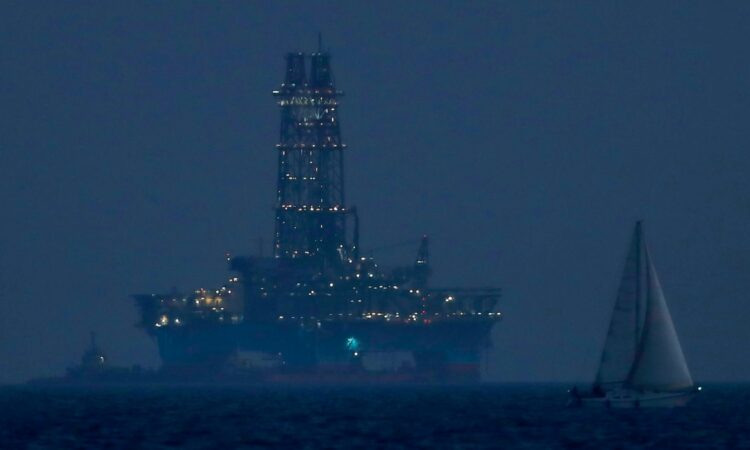
Egypt’s energy minister says gas supplies in the Mediterranean region are probably sufficient to meet Europe’s need if investments are made to exploit gas fields in the area.
Egyptian TV reported Saturday that Cypriot President Nicos Anastasiades thanked Egypt for its efforts to jointly coordinate the exploitation of regional undersea natural gas resources by putting together the East Mediterranean Gas Forum last June.
Arab media also reported Saturday that Egypt’s energy minister, Tarek el Molla, who attended the one-day conference bringing together several nations in Cyprus Friday, said that gas supplies in the East Med region will be what he called “a life-saver for Europe at a time of crisis,” and “could eventually meet Europe’s gas needs if the proper investments are made.”
Egypt has been critical in the past of European and international finance institutions for being unwilling or unenthusiastic about making investments in regional oil fields to share the burden of bringing gas production in several undersea fields online, which is frequently very costly.
Egyptian political sociologist Said Sadek told VOA that the current international crisis resulting from the conflict between Russia and Ukraine could eventually subside and “if Russian gas was again pumped to Europe, it would make some East Med gas fields less profitable to exploit.”
Sadek pointed out that a number of East Mediterranean gas fields are fraught with problems linked to regional rivalries and conflicts between Egypt and Turkey — over fields near Libya and Greece — and Turkey over fields in Cypriot territorial waters, and in fields between Greece and Turkey.
“The Mediterranean is full of gas …enough to export, but the trouble is the struggle, especially the problem with Libya is problematic and it will take time, [and] the Cana field in Lebanon was not ready,” he said. “Turkey wants a piece of the pie and they tried to harass Greece (in a variety of ways).”
Sadek noted that Russian President Vladimir Putin reportedly told his Turkish counterpart, Recep Tayyip Erdogan, when the latter visited Moscow recently, that he should “extend the TurkStream natural gas pipeline going from Russia to Turkey into Eastern Europe.” Sadek added that such a move “angered a number of countries and that it would take several years to do, in any case.”
U.S.-based energy analyst Paul Sullivan concurs with Sadek, pointing out that “there is a lot of gas in the eastern Mediterranean region [but] it takes a long time to develop gas fields and transport infrastructure to get the gas to market.” He stressed that “over time the East Mediterranean gas fields could bring much more gas to Europe and other places.”
“Investing in these fields,” he added, “includes financial and even political and physical risks,” as well.






